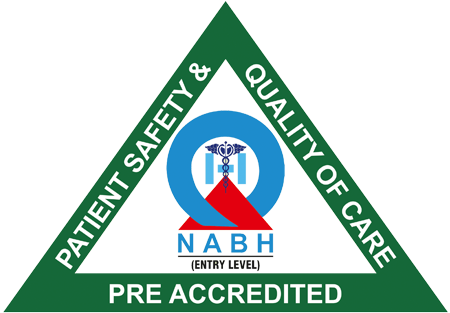Welcoming a new baby is exciting but can also come with many decisions, especially regarding how to feed your little one. Breastfeeding and formula feeding are two primary options, and both have their pros and cons. Parents often feel overwhelmed by advice and opinions, so we’re here to give you clear, medically accurate information to help you make a guilt-free, informed decision. Let’s break it down.
Why Is This Debate Important?
The feeding choices you make for your baby affect not only their health and development but also your well-being as a parent. There’s no universal “right” answer, as every family’s circumstances and needs are unique. Understanding the benefits and challenges of both breastfeeding and formula feeding can guide you to the best decision for your baby and your family.
Overview of Breastfeeding and Formula Feeding
Breastfeeding is the practice of feeding a baby directly from the mother’s breast or expressing milk for bottle feeding. Breast milk is custom-made by your body and adapts to meet your baby’s nutritional needs.
Formula feeding uses manufactured baby formulas designed to mimic breast milk. They are made from cow’s milk or plant-based alternatives, enriched with nutrients, vitamins, and minerals.
Addressing Parental Concerns
It’s normal to have worries about feeding your baby. Are they getting enough nutrition? Will formula feeding affect bonding? Can you manage breastfeeding if you return to work? We’ll explore these questions and provide evidence-based answers.
At Shenoy Hospitals, we understand that every parent wants the best for their newborn. Experience compassionate maternity care with top specialists. Book an appointment now!
Breastfeeding: Benefits & Challenges
Health Benefits for Baby
Breast milk is often referred to as the “gold standard” for infant nutrition. Here’s why:
- Nutritional Superiority: Breast milk contains all the nutrients, enzymes, and antibodies your baby needs for optimal growth, especially in the first six months. Colostrum, the milk produced during the first few days, is packed with protective antibodies.
- Lower Risk of Illness: Breastfed babies tend to have fewer respiratory infections, ear infections, and digestive issues like diarrhea. Breastfeeding may also reduce the risk of allergies, asthma, and even chronic diseases such as diabetes and obesity.
- Immune System Support: The antibodies in breast milk, like Secretory IgA, help strengthen your baby’s immune system.
Health Benefits for Mothers
Breastfeeding isn’t just great for babies; it benefits mothers, too:
- Faster Recovery: It helps your uterus contract and return to its pre-pregnancy size faster, thanks to the release of oxytocin.
- Lower Cancer Risk: Breastfeeding is linked to a reduced risk of breast and ovarian cancers later in life.
Challenges of Breastfeeding
Breastfeeding has its hurdles, especially in the beginning:
- Latching Problems: Some babies struggle to latch on, which can cause discomfort or concerns about milk transfer.
- Supply Issues: Low milk supply or oversupply can be stressful to manage.
- Social Stigma: Breastfeeding in public still carries a stigma in some places, which can make feeding on the go difficult for moms.
Formula Feeding: Benefits & Challenges
Advantages of Formula Feeding
Formula feeding is a viable alternative with unique perks:
- Convenience: Formula feeding allows other caregivers to help with feeding, making it easier for mothers to return to work or rest.
- Predictable Feedings: You can measure exactly how much your baby is eating.
- Less Physical Strain: Mothers who struggle with breastfeeding due to medical conditions or pain can avoid discomfort.
Challenges of Formula Feeding
There are, however, some challenges to consider:
- Cost: Formula can be expensive, with costs adding up over the months.
- No Natural Immunity: Unlike breast milk, formula doesn’t contain the antibodies or enzymes beneficial for a baby’s immune development.
- Possible Allergies: Some babies may develop allergies to cow’s milk or soy-based formulas.
Nutritional Comparison: Breast Milk vs. Formula
Key Nutrients
Both breast milk and formula contain essential nutrients like protein, fat, and carbohydrates. However, breast milk’s composition constantly adapts to your baby’s needs, while formula contains fixed nutrients.
- Immunity: Only breast milk provides antibodies that fight infections.
- Weight Gain: Both options can support healthy weight gain when babies are fed appropriately.
Myths Debunked
- Myth: Formula babies won’t bond with their parents.
Truth: Bonding happens through cuddling, eye contact, and love, regardless of feeding method. - Myth: Breastfeeding is always easy.
Truth: Many mothers face challenges, and that’s completely normal.
Common Concerns & FAQs
Is Formula Feeding Bad for the Baby?
No, formula is a safe, nutritious option. While it doesn’t provide some of the immune benefits of breast milk, it can still support healthy growth and development.
Can I Switch Between Breastfeeding and Formula?
Yes! Many parents choose mixed feeding. Gradual transitions and consulting a pediatrician can help.
How Does Formula Affect Bonding With the Baby?
Bonding isn’t just about breastfeeding. Gentle touch, eye contact, and closeness during feeding strengthen your bond, whether using breast milk or formula.
Is Breastfeeding Better for Cognitive Development?
Some studies suggest a slight benefit in cognitive development for breastfed babies, but this difference is influenced by many factors, including genetics and the environment.
What Are the Signs My Baby Isn’t Getting Enough Nutrition?
Look out for fewer than 6 wet diapers a day, poor weight gain, and unusual lethargy. Always consult your pediatrician if you’re concerned.
Welcoming your baby should be a joyful experience! Our trusted maternity care center in Secunderabad offers personalized support for a smooth and healthy delivery. Contact us today!
Factors to Consider When Choosing
Your family’s circumstances matter when deciding:
- Lifestyle: Full-time working moms might lean toward formula or mixed feeding. Stay-at-home moms might prefer breastfeeding if feasible.
- Health: Certain medical conditions may affect breastfeeding.
- Support: Do you have a strong support network or access to lactation consultants?
- Comfort Level: What feels right for you? Feeding should be a stress-free experience.
Combining Breastfeeding & Formula Feeding (Mixed Feeding)
Many families find that mixed feeding works best. If you go with this option:
- Start small and pay attention to how your baby adapts.
- Breastfeed at times when your milk supply is highest, like early morning.
- Choose a high-quality infant formula recommended by your pediatrician.
Expert Advice & Pediatrician Recommendations
World Health Organization (WHO) recommend exclusive breastfeeding for the first six months, then introducing solids while continuing to breastfeed up to 1–2 years or more if desired. However, they also emphasize that feeding choices should respect each family’s needs and circumstances.
If you face challenges, a lactation consultant can provide personalized advice and support.
Final Verdict: Making the Best Choice for You & Your Baby
There’s no one-size-fits-all answer when it comes to feeding your baby. Whether you breastfeed, formula-feed, or do both, you are making the best decision for your family. What’s most important is that your baby is loved, cared for, and well-nourished.
Take a deep breath, trust your instincts, and remember that you’re doing an amazing job!
Your baby’s health deserves the best care! Choose one of the best hospitals in East Marredpally for expert maternity and newborn care. Schedule your consultation today!
Conclusion
Feeding your baby should be a joyful and nurturing experience, not a stressful one. Whether you choose breastfeeding, formula feeding, or a combination of both, the most important thing is finding what works best for you, your baby, and your unique situation.
Every baby and parent is different, and there’s no one-size-fits-all approach. Remember, your love, care, and commitment to meeting your baby’s needs are what truly matter the most. It’s about creating a bond and ensuring your baby feels safe, healthy, and loved during every feeding moment.
Share:



